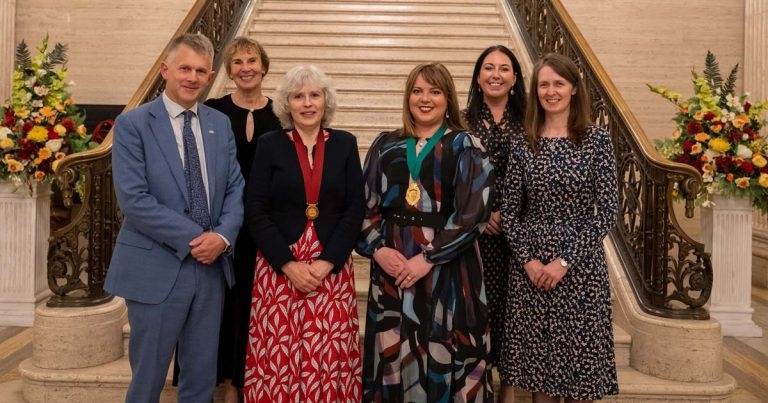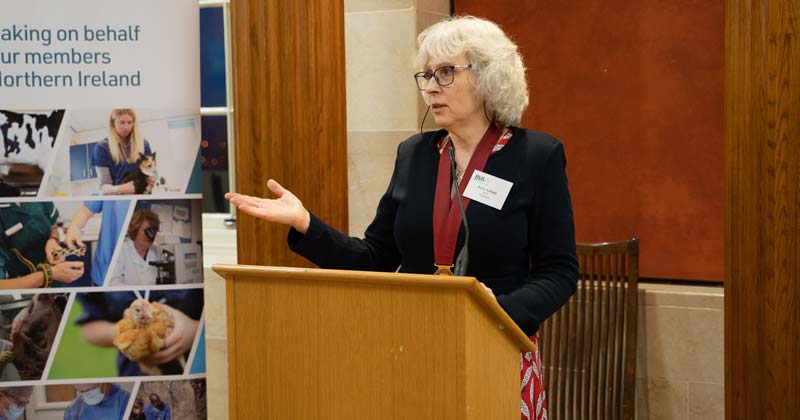23 Oct 2023
Northern Ireland could be left without any vaccines for Salmonella and leptospirosis if a permanent supply agreement is not reached with the EU, Anna Judson told the association’s Northern Ireland dinner.

From left: BVA senior vice-president Malcolm Morley, junior vice-president Elizabeth Mullineaux, president Anna Judson, Northern Ireland branch junior vice-president Sharon Verner, Northern Ireland branch president Esther Skelly-Smith and Northern Ireland branch senior vice-president Fiona McFarland.
The BVA president has warned Northern Ireland’s vets could be left with no treatment options for some diseases if a permanent post-Brexit medicine supply solution is not found.
Anna Judson set out her fears for what the future could look like as she addressed the association’s annual Northern Ireland dinner at Stormont on 18 October.
Although present arrangements are due to continue until the end of 2025, fears persist that around half of all products currently used there would not be available without a long-term resolution.
That has prompted warnings over the risk of a potential “black market” and, in her first major speech as president, Dr Judson spelled out what that could mean on the ground.
Dr Judson said: “We are looking at the loss of the only licensed Salmonella vaccine and both leptospirosis vaccines for cattle – diseases which affect both animals and people.
“We would lose some flu and tetanus vaccines for horses – and we know tetanus is often a fatal disease – and we could lose insulin for dogs and cats.
“These are just a few examples of the scale of impact if a solution is not found.”
The association has called for the introduction of what it terms a “grandfather rule” that would require newly licensed medicines to adhere to EU rules, but enable the continuing supply of products that complied with the bloc’s regulations pre-Brexit.
Dr Judson urged guests to support the group’s efforts to lobby both the European Commission and UK Government on the issue, as well as the main UK opposition parties ahead of a General Election, which is widely expected in 2024.

Dr Judson also called for government and industry figures to work with vets in the development of a new Future Farming Framework that prioritises both animal welfare and engagement between vets and farmers.
She said: “We recognise the current challenges faced by DAERA [Northern Ireland’s Department of Agriculture, Environment and Rural Affairs] in the absence of a sitting Assembly, and with the secretary of state’s recent budget cuts.
“However, Northern Ireland has historically been held back by outdated or absent animal health and welfare legislation and lags behind the rest of the UK, an example being the current lack of a legal or regulatory requirement for farrier registration.”
Dr Judson further called for increased investment in Northern Ireland-based veterinary education to help tackle the sector’s workforce pressures and reform of the Veterinary Surgeons Act.